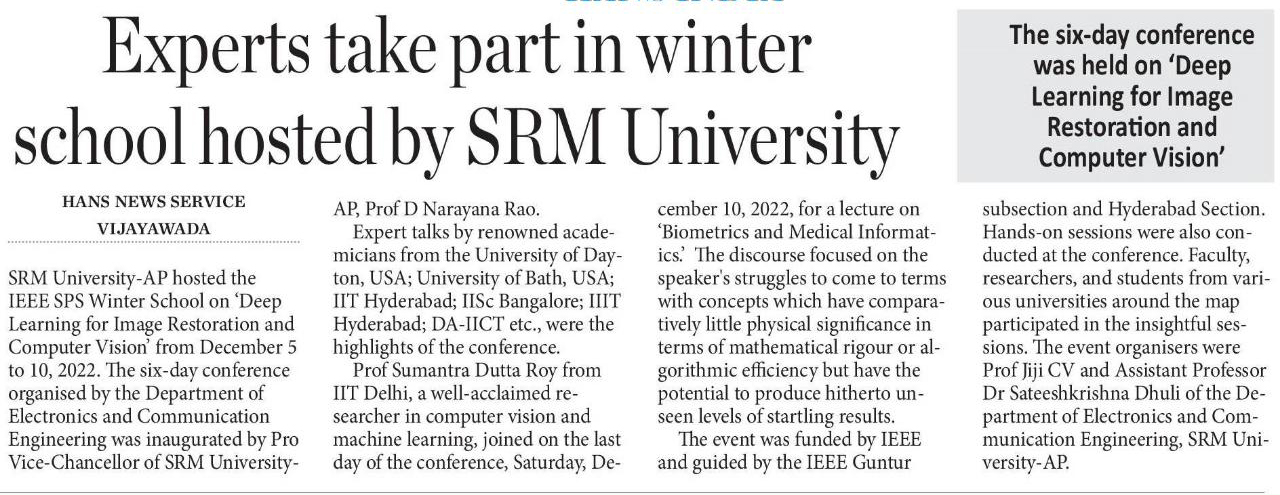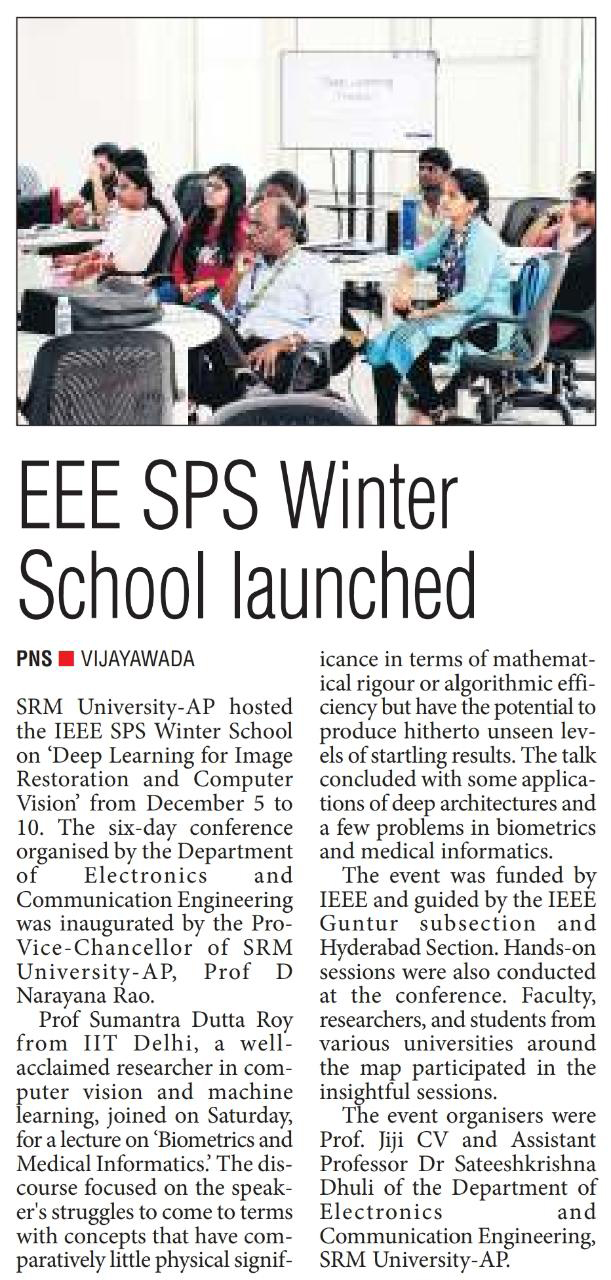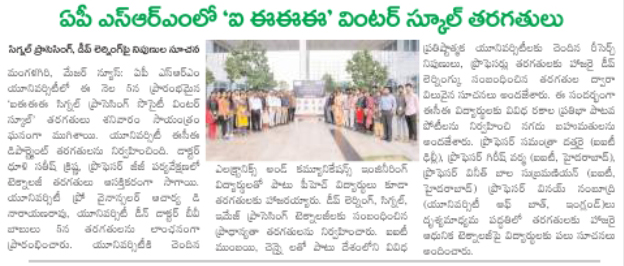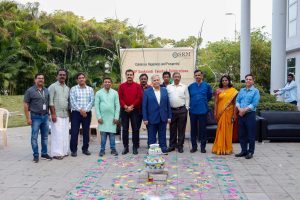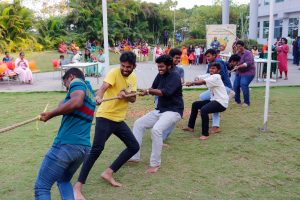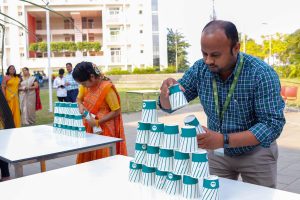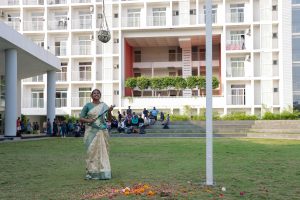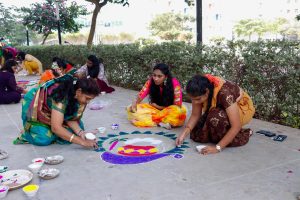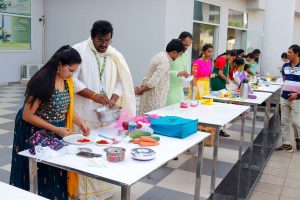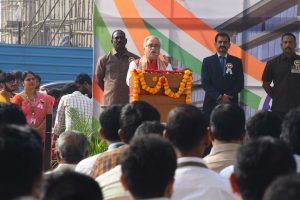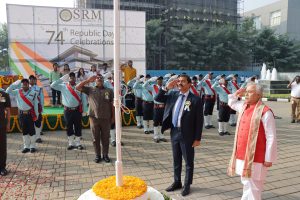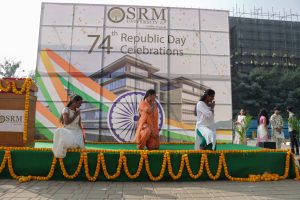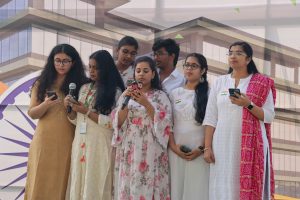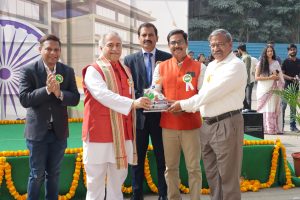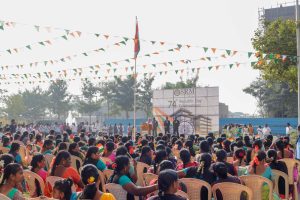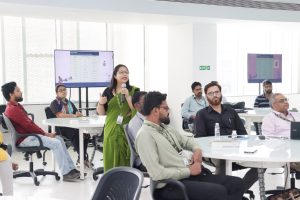All Management Events
- Winter School Conference February 1, 2023
- Freshers Day Celebrations February 1, 2023
The Hindu

The Express
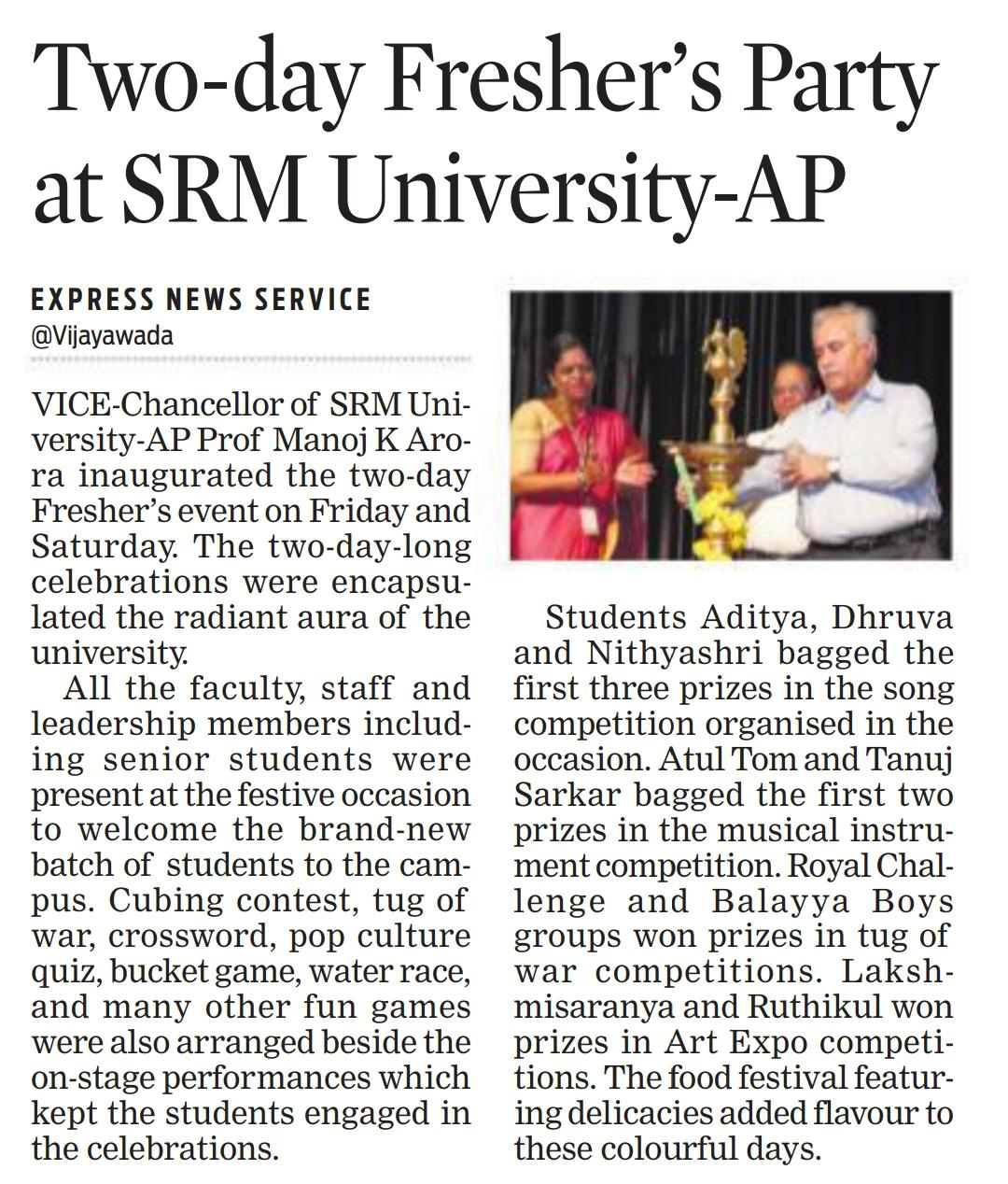
The Pioneer

Spot News
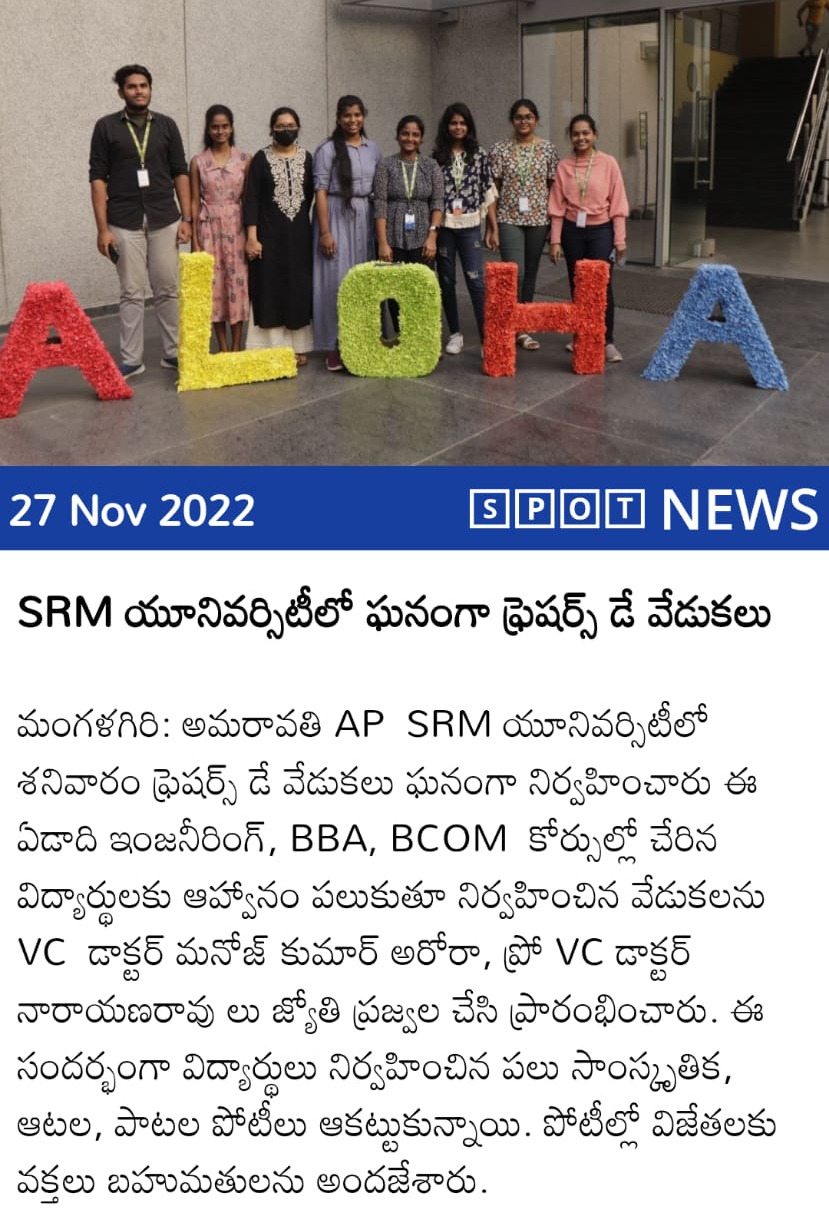
Andhra Patrika
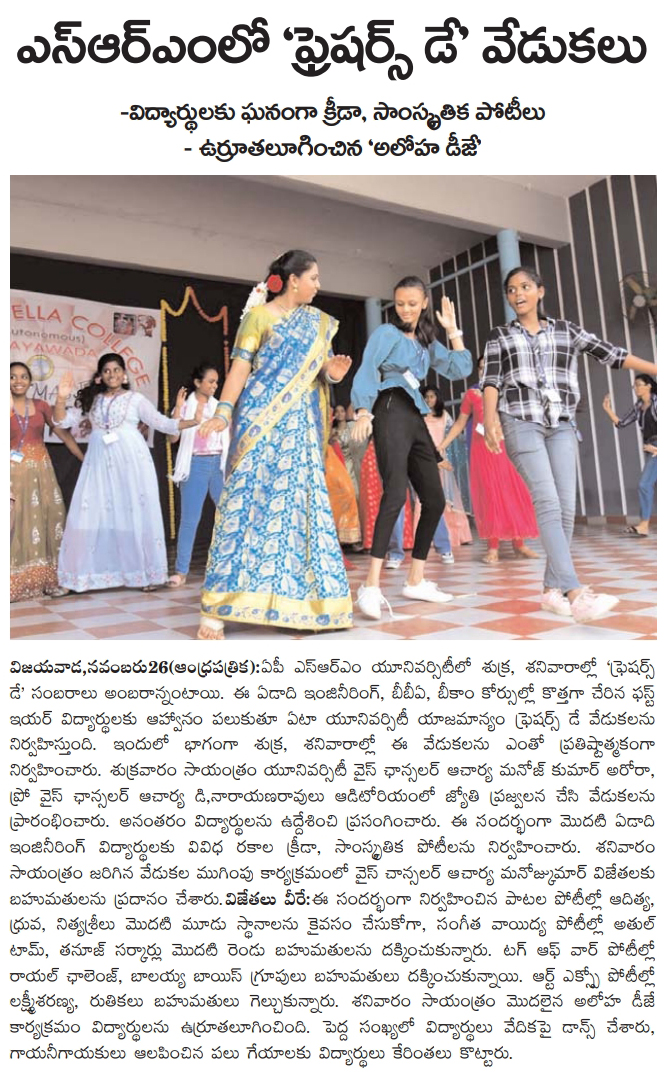
Visalandhra
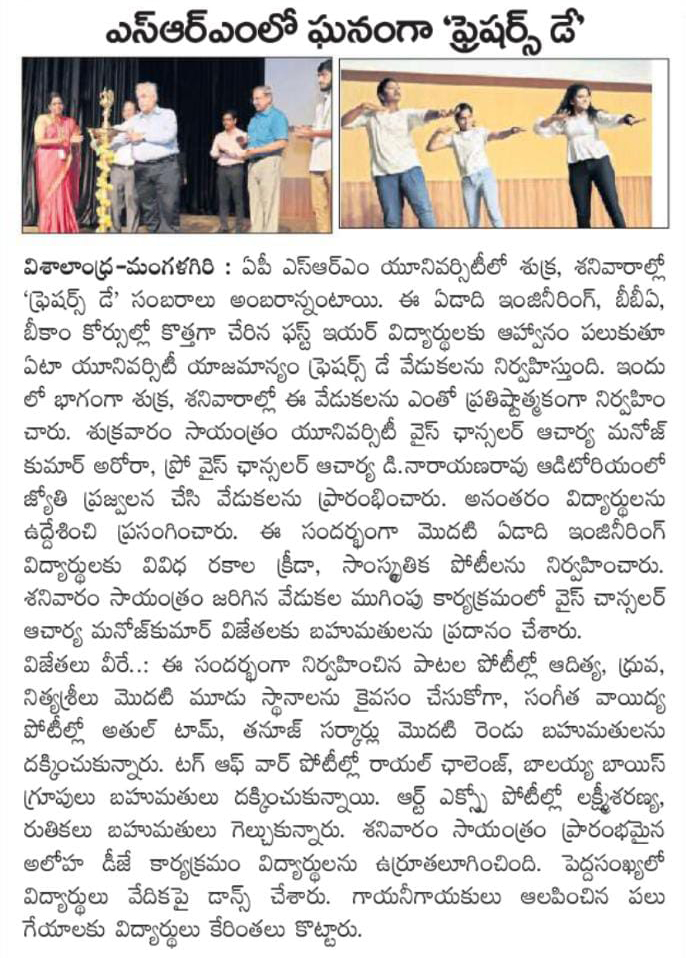
Surya
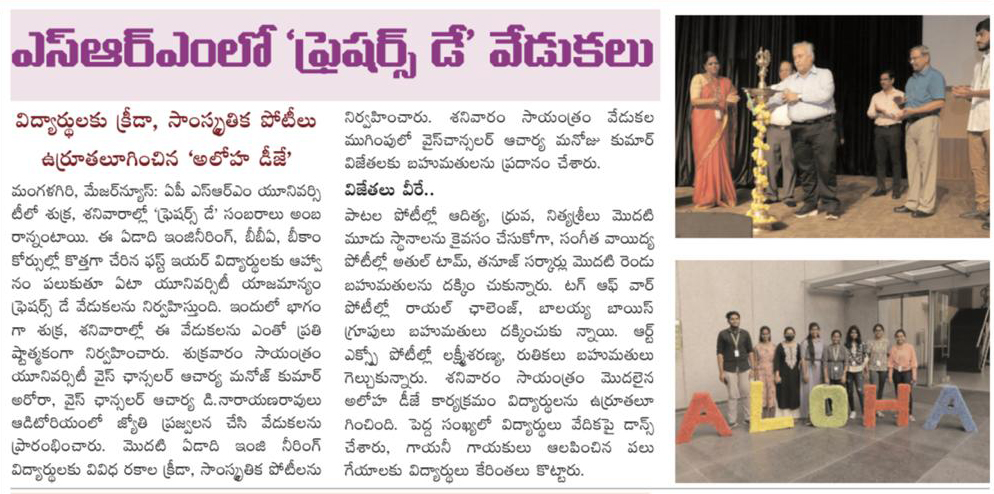
Andhra Prabha
Continue reading →
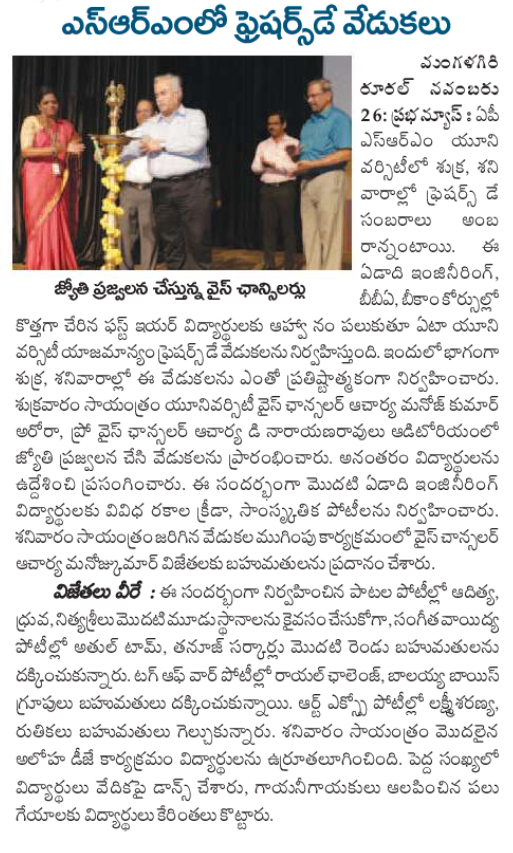
- Facilitating Physical Fitness and Athletic Glory! January 31, 2023
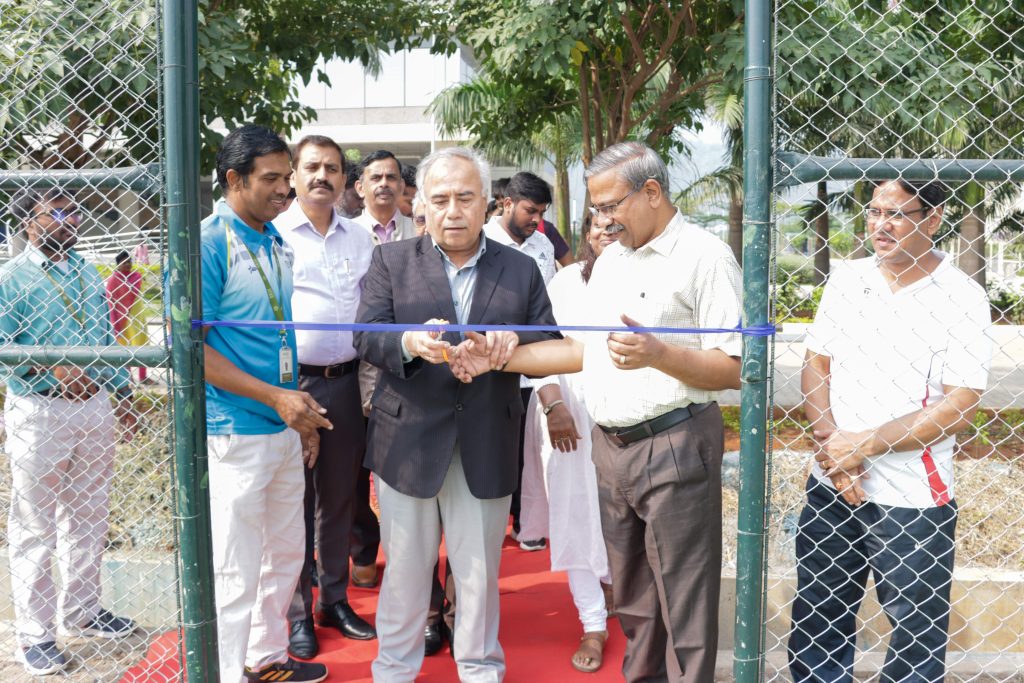
“Physical fitness is not only one of the most important keys to a healthy body, it is the basis of dynamic and creative intellectual activity.”
-John F. Kennedy
The Directorate of Sports of SRM University-AP, inaugurated the ‘‘Synthetic Tennis Court” accentuating the importance of physical fitness in everyday life and catering to rising tennis players with immense potential. Honourable Vice Chancellor, Prof. Manoj K Arora inaugurated the new court with a maiden game along with Registrar Dr R Premkumar, Director of Sports, Dr Vijay Kumar Upadhyay and Director of Communication, Mr Pankaj Belwariar. SRM AP aims at providing intensive quality training and world-class facilities for students with potential, encouraging and developing them into national and international athletes. The university showcases the significance of the seamless alignment of sports with academics to improve the physical and mental constitution of the students.
Continue reading → - Makar Sankranti at SRM AP – A Delightful Celebration! January 31, 2023
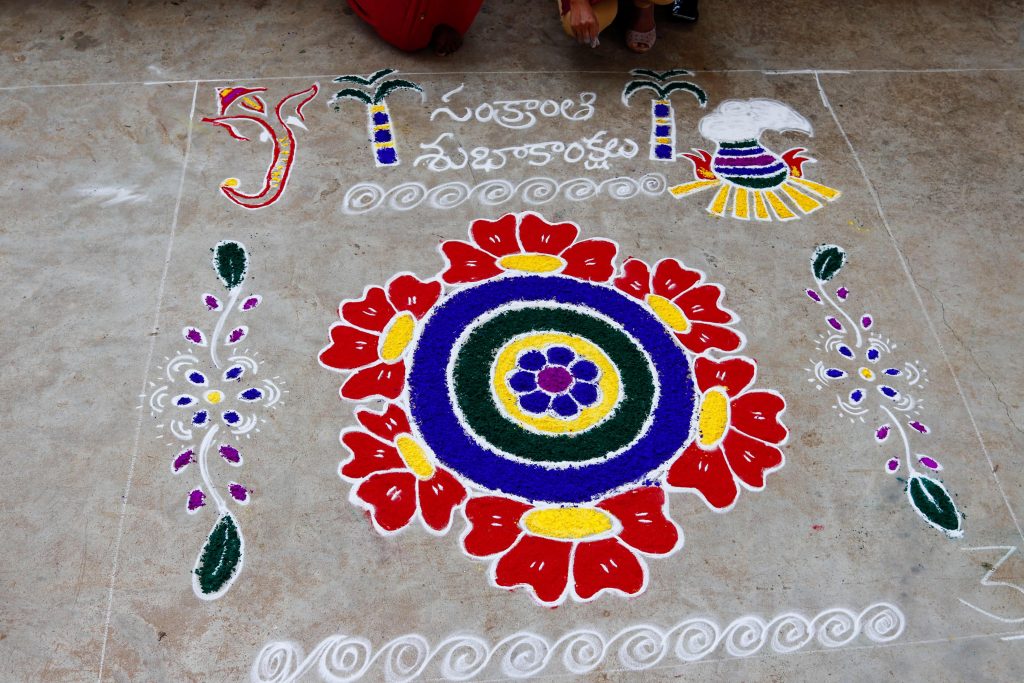
The year’s harvest festival was celebrated with great exuberance and ecstasy by the faculty, staff and students of SRM AP. All festivities were up in the air when all in the academic and non-academic community were adorned in their ethnic wear and came together to represent and celebrate the traditions and honour our heritage.
The Makar Sankranti/Pongal celebrations comprise various games and activities that best showcase the creative skills of the participants. The Rangoli Making contest was one of the highlights of the celebration. Rangoli, being an essential mark of celebrating festivities, is drawn in different states with different names and on different themes. Muggu in Andhra Pradesh, Kolam in Tamil Nadu, Sathiya in Gujarat, Alpana in Bengal, Mandana in Rajasthan, Osa in Odisha, Aipan in Uttarakhand, or simply the Rangoli from Maharashtra – every region has its unique way of representing their traditions, folklore and practices.
A thrilling pot-breaking contest, cup stacking contest and an adrenaline-driven tug-of-war saw active participation from our Indian and international students who were fascinated by our cultural representations and immersed themselves in various competitions. To create awareness about the nutritional value of food cooked without flame, the necessity and advantages of healthy eating and to encourage people to stay away from junk food, a Cooking without Fire/Induction contest was held.
Continue reading → - ECBC Five Star Rating for SRM University-AP January 31, 2023
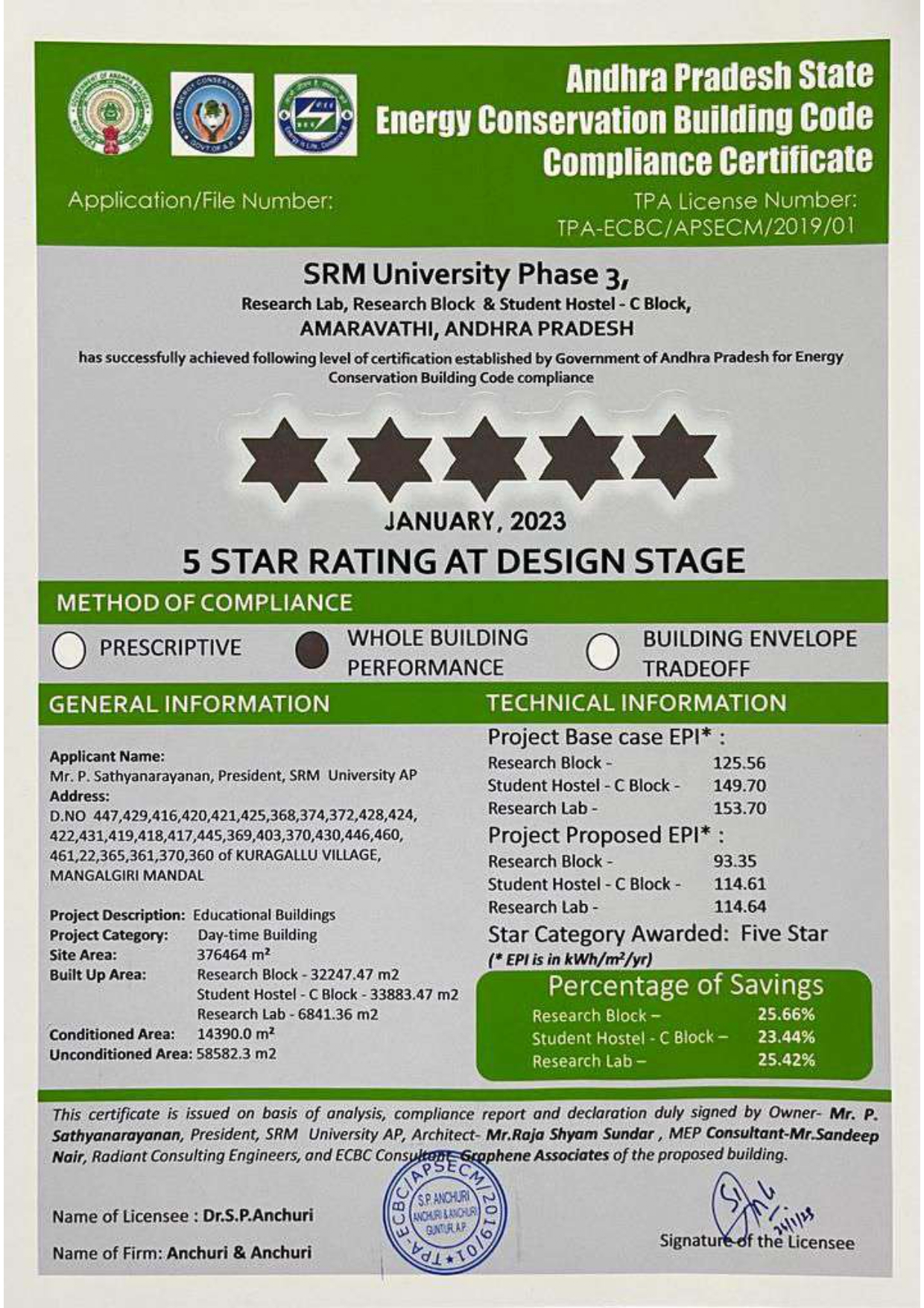 SRM University-AP has achieved a 5 Star rating from the Andhra Pradesh Energy Conservation Building Code (APECBC) for its Phase II Research Block (Utility Extension), Phase III Hostel Block (Vedavathi) and Phase III Research Buildings. This is in continuation of the rating achieved for Phase I and Phase II buildings.
SRM University-AP has achieved a 5 Star rating from the Andhra Pradesh Energy Conservation Building Code (APECBC) for its Phase II Research Block (Utility Extension), Phase III Hostel Block (Vedavathi) and Phase III Research Buildings. This is in continuation of the rating achieved for Phase I and Phase II buildings.The Ministry of Power launched the Energy Conservation Building Code (ECBC) as a first step towards promoting energy efficiency in the building sector. The main purpose of the ECBC is to provide minimum requirements for the energy-efficient design and construction of buildings. It provides futuristic advancement in building technology and reduces energy consumption and promotes low-carbon growth in the building sector.
The State government has issued an order making the Andhra Pradesh Energy Conservation Building Code (APECBC) mandatory to get building approvals for commercial and non-residential buildings with a plot area of 1,000 square meters or a built-up area of 2,000 square meters. Union Ministry of Power-led Bureau of Energy Efficiency (BEE) has introduced the ECBC in commercial and non-residential buildings with an objective to ensure the construction of energy-efficient buildings with reduced electrical energy by 30- 40 per cent. ECBC can help reduce electricity bills for building owners and stakeholders apart from environmental benefits and help to improve the living standards of people. ECBC is one of the most cost-effective tools to curb future energy demand and deliver significant cost-energy savings.
Continue reading → - “Glory to a Proud Nation”- 74th Republic Day Celebrations at SRM AP January 31, 2023
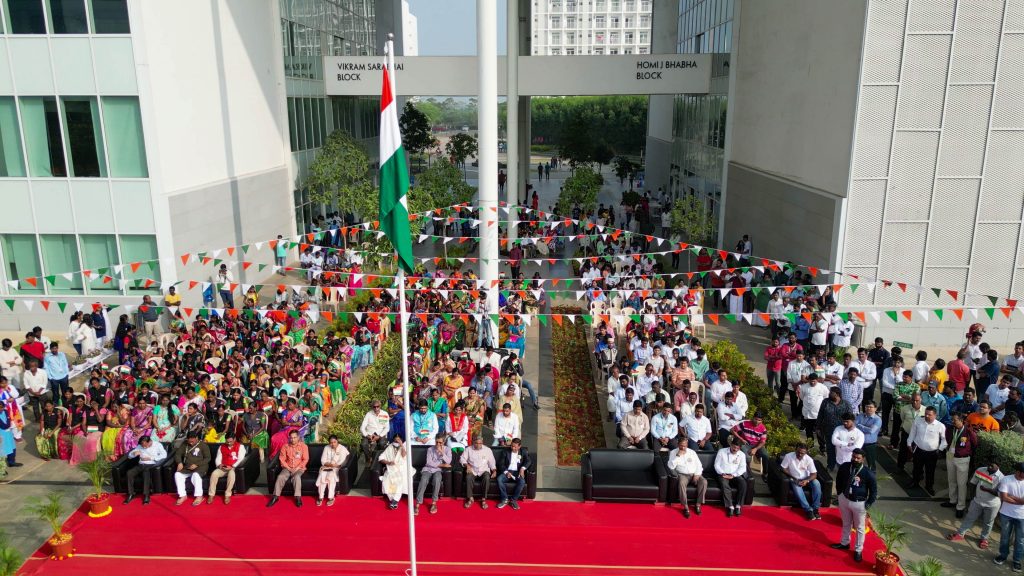
SRM University-AP celebrates the 74th Republic Day of our glorious nation with immense pride and zeal in commemorating the genesis of India’s constitution. Honourable Vice Chancellor, Prof. Manoj K Arora initiated the auspicious event by unfurling the flag, proceeding with the National Anthem and March Past. He explicated the significance of paying homage to our great nation and our brave leaders whose vigilance and valour contributed to forming a secular and republic country.
“India, since its inception as an independent, democratic nation, has advanced to the forefront of the global community as a rising influential power in the domains of science and technology, economics, democratic polity and the thriving Research and Development sector. Our constitution gives us the responsibility, rights, and resources to work towards the growth of our nation. SRM University-AP aligns itself with India’s vision, providing an innovative research-oriented ecosystem for cutting-edge research and entrepreneurial learning that works in tandem with the holistic growth of the country.” said Prof Arora in his commemorative speech.
On this proud occasion, SRM AP honoured its dedicated staff and faculty who have rendered their faithful service to the university’s cause and holistic development for the past five years. Honourable Vice Chancellor felicitated the programme and awarded mementoes and certificates to the recipients for their dedicated commitment to the institute. Laurels were also presented to the winners and champions for their remarkable achievements in their respective fields at the event. Cultural programmes by the students contributed to the joyous Republic Day celebration of our rich and valiant nation.
Continue reading → - Blood Donation Camp at SRM University-AP: Hundreds of Blood Donors Joined in the Noble Gesture January 31, 2023
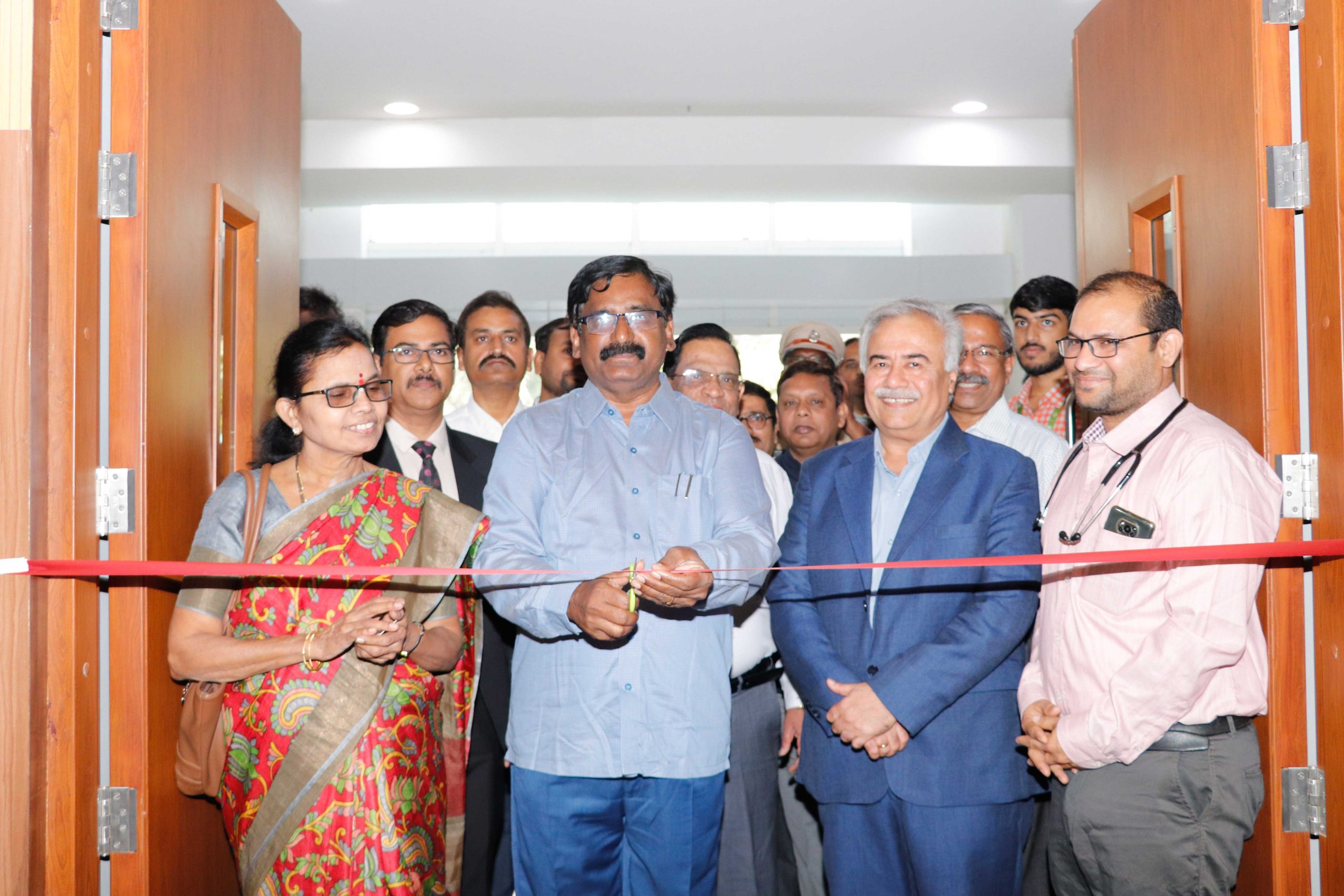 NSS Cell, Health Centre and the Directorate of Student Affairs of SRM University-AP, in Association with the Government Blood Bank, Guntur, conducted a Blood Donation Camp on Wednesday, January 25, 2023. Mr S K Kareem, Deputy Transport Commissioner, Guntur, was the Chief Guest of the programme. The Guest of Honour of the event was Dr Prabhavathi, Superintendent, Government General Hospital, Guntur. Over 100 students and faculty members donated their blood at the camp.
NSS Cell, Health Centre and the Directorate of Student Affairs of SRM University-AP, in Association with the Government Blood Bank, Guntur, conducted a Blood Donation Camp on Wednesday, January 25, 2023. Mr S K Kareem, Deputy Transport Commissioner, Guntur, was the Chief Guest of the programme. The Guest of Honour of the event was Dr Prabhavathi, Superintendent, Government General Hospital, Guntur. Over 100 students and faculty members donated their blood at the camp.The guests were welcomed to the university with mementoes and bouquets by the Vice Chancellor, Pro-Vice-Chancellor, and Registrar of SRM University-AP. Mr S K Kareem lauded the significance of blood donors at a time when road accident rates are exponentially increasing. He also requested the Vice Chancellor of SRM AP to organise a road safety awareness programme for the students. “Enrol yourself in blood donor groups and be willing to donate your blood from time to time”, said Dr Prabhavathi as she explained the different occasions where sufficient availability of blood is indispensable.
Continue reading →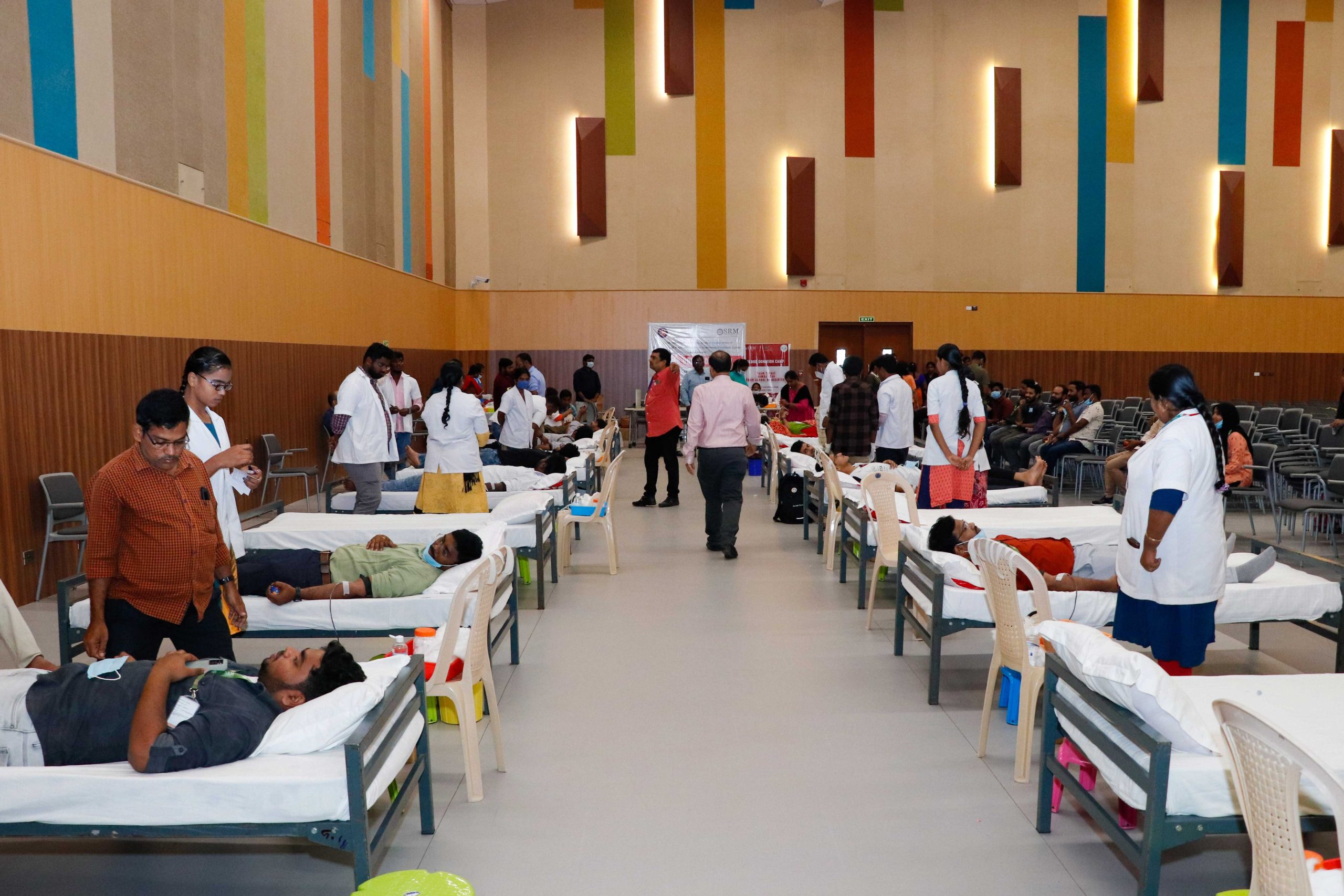 Vice Chancellor of SRM AP, Prof. Manoj K Arora, motivated students to donate blood and, in addition, to do some research in the area. He stressed the importance of ensuring that the donated blood is being utilised at the right place. Prof. D Narayana Rao, Pro-Vice-Chancellor of SRM AP, highlighted the need for regular blood donation and applauded all the blood donors. At the same time, he discussed how blood donation benefits both the donor and the receiver. Dr R Premkumar, Registrar of SRM AP; Mr Anil Kumar Nigam, Director of Student Affairs; Ms Revathy Balakrishnan, Assistant Director of Student Affairs; Dr Ch Lakshmi Rajyam, Medical Officer of SRM AP; and Dr A Lakshmana Rao, NSS Coordinator of SRM AP was also present at the occasion. Students of Samaj Seva, an initiative of the Paari School of Business at SRM AP, volunteered to assist with the blood donation camp.
Vice Chancellor of SRM AP, Prof. Manoj K Arora, motivated students to donate blood and, in addition, to do some research in the area. He stressed the importance of ensuring that the donated blood is being utilised at the right place. Prof. D Narayana Rao, Pro-Vice-Chancellor of SRM AP, highlighted the need for regular blood donation and applauded all the blood donors. At the same time, he discussed how blood donation benefits both the donor and the receiver. Dr R Premkumar, Registrar of SRM AP; Mr Anil Kumar Nigam, Director of Student Affairs; Ms Revathy Balakrishnan, Assistant Director of Student Affairs; Dr Ch Lakshmi Rajyam, Medical Officer of SRM AP; and Dr A Lakshmana Rao, NSS Coordinator of SRM AP was also present at the occasion. Students of Samaj Seva, an initiative of the Paari School of Business at SRM AP, volunteered to assist with the blood donation camp. - Dr Harish Puppala January 30, 2023
- Faculty Orientation Programme 2023 January 30, 2023
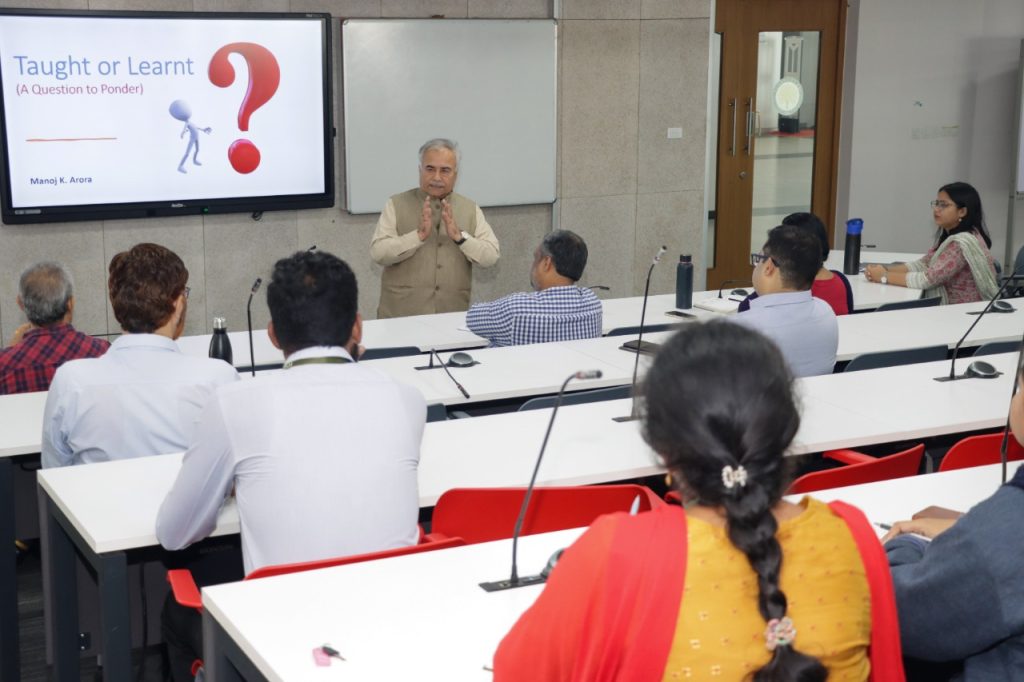
The Teaching Learning Centre at SRM University-AP conducted a 4-day face-to-face Faculty Orientation programme for the newly joined faculty members from January 17 – 20, 2023. Honourable Vice Chancellor, Prof. Manoj K Arora delivered an introductory talk expounding on the larger goals of the University. The programme aimed at seamlessly aligning faculty activities with the University’s ideology & philosophy.
The workshop included a series of hands-on sessions on Active Learning, Project Based Learning, Technology-enabled learning, Outcome-based learning, Curriculum design, development and delivery, new ways of assessments, Classroom communication and Student engagement facilitated by Dr Balaguruprasad N and Dr Anupama G, faculty members of the Teaching Learning Centre.
More than 50 new faculty members attended and benefited from the programme by working together in experiential activities, creating new lessons using innovative pedagogies and designing innovative assessments among other teaching-learning practices. The participating faculty members also benefited from the University student counsellor, Ms Liza Hazarika and Dr Veena Kumar from the University of Maryland, Global Campus.
Continue reading → - Dr Pratik Roy January 30, 2023



